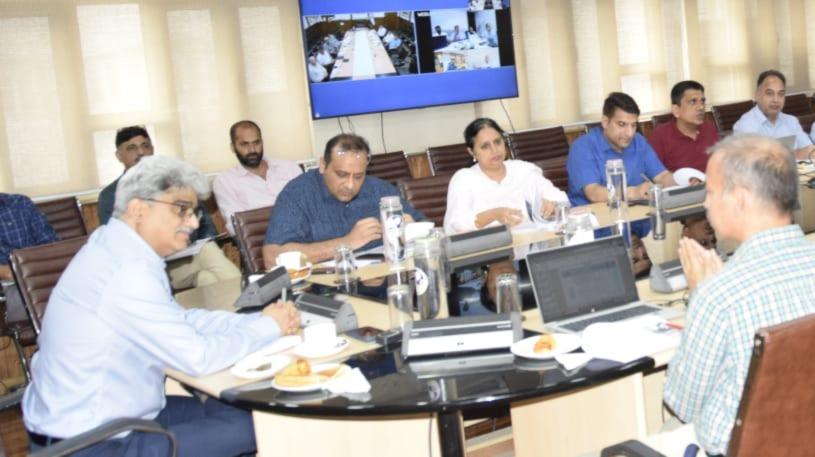J&K embarks on mission to create Family IDs
Chief Secretary consults stakeholders for making headway

Jun 28, 2025
SRINAGAR: Chief Secretary Atal Dulloo, today chaired a high-level meeting to lay the groundwork for creation of unique Family IDs for every household in Jammu & Kashmir.
This pioneering initiative aims to streamline the delivery of public services, enhance beneficiary outreach and serve as a unified source of truth for planning and monitoring across government departments.
The meeting, held at the Civil Secretariat, was attended by the Principal Secretary, Finance; MD/CEO, J&K Bank; Commissioner Secretary, FCS&CA; Commissioner Secretary, H&UDD; Secretary, Planning; Secretary, IT; Secretary, RDD; DG, Planning; DG, Codes; DG, Budget; CEO, JaKeGA; representative of BISAG-N and other concerned officers.
The Chief Secretary underscored the transformative potential of the Family ID system. He remarked that creation of these Family IDs will provide invaluable insights into the traction of our beneficiary-oriented schemes among the public, while simultaneously ensuring that every eligible citizen receives the benefits rightfully due to them. It is a critical step towards fostering a more accountable and responsive administration.
Secretary, Planning, Development & Monitoring Department (PD&MD),Talat Parvez, provided a comprehensive overview of the program. He delved into its background, emphasizing the pressing need for such a unified system in J&K, detailing the immense potential benefits for the populace and outlining a robust implementation plan.
Secretary, Information Technology, Dr. Piyush Singla, elaborated on his department's crucial role in achieving the objectives of this ambitious program. He highlighted the substantial resources and technical expertise available within the IT Department. He assured the meeting that the necessary infrastructure is in place to successfully translate this vision into reality across the entire UT.
A key challenge addressed during the discussions was the current practice of multiple government departments repeatedly requiring the same documentation and verification processes from citizens to disburse benefits. This duplication not only places an undue burden on the public but also strains government resources. The Family ID is set to resolve this by becoming a singular, authoritative source of information, thereby significantly reducing the hurdles besides optimizing resource allocation.
Furthermore, the meeting acknowledged the existing difficulties citizens face in accessing various government schemes and the administration's challenges in effectively reaching out to the public with relevant programs. The Family ID initiative is poised to be a definitive solution to this long-standing conundrum, ensuring that services are delivered seamlessly and efficiently to those who need them most.
Detailed deliberations were held regarding the primary sources of data for the Family IDs, with specific mention of datasets from the Public Distribution System (PDS) and the Ayushman Bharat-Pradhan Mantri Jan Arogya Yojana (AB-PMJAY). Future provisions for making necessary alterations, additions, or deletions to the Family ID data were also thoroughly discussed, particularly in light of demographic changes arising from birth and death events, as well as migration.
The collaborative nature of this undertaking was reiterated, with discussions emphasizing the essential requirement of a dedicated technical team and invaluable assistance from BISAG-N to successfully accomplish this critical mission across J&K.